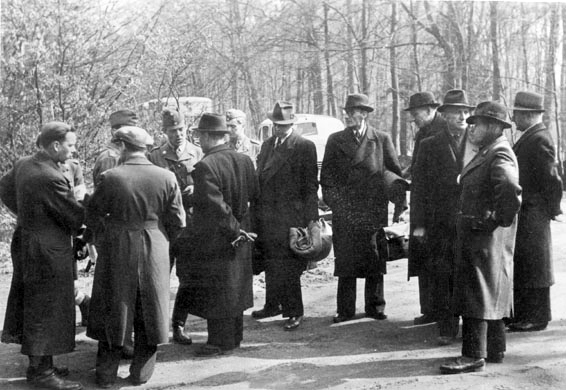

An article about the EPO's Investigative Unit has been long overdue. It's like the goons or thugs of the Office, or the militant guards of Team Battistelli, which are complemented by a fleet of bodyguards in spite of low threat levels. Staff is subjected to scans as though it is boarding a plane and sometimes subjected to psychological torture. Almost everyone we hear from says that working for the EPO is a nightmare if not torture; some seriously think about leaving. They can't take it anymore. It wasn't always the case; Battistelli made it so. Over the past couple of years the EPO has been acting like a frightened state with secret services and armed bodyguards, not like a public service or institution. We already published a series of articles about it last year [1, 2, 3, 4, 5, 6, 7]. Nothing at all has changed for the better; in fact, things have gotten even worse. Things continue to exacerbate and lying has become so chronic that next month there will be a whole "report" and "conference" to tell the world that EPO staff is happy. Even North Korea has not yet stooped this low...
[PDF]. The document is 14 pages long so we haven't converted it to HTML. Instead, "short observations on the review process" can be found below:
Investigating the EPO Investigative Unit - a peer review?
Introduction When the Investigation Guidelines were adopted, a review was foreseen after three years, i.e. early 2015. At the time Mr Battistelli did not seem interested. That has changed: in its December meeting the Administrative Council insisted on a review, not only of the Guidelines but also of the Unit itself. Ms Bergot has now informed the CSC that an external review of the EPO quality function will soon take place. That could be good news, or it could be a white-washing exercise.
External review of the WIPO Investigation Function Interestingly, a very similar review has taken place in WIPO only half a year ago. The external reviewers were a “senior investigation officer” from an UN organization, Mr Sébastien Godefroid and Mr Claudio Zanghi, head of the EPO Investigative Unit. The EPO Investigative Unit is hardly a best practice example. Maybe not surprisingly the report recommends strengthening the WIPO Investigative Unit by hiring staff, providing less information to the accused, and making access to electronic data easier. Data protection issues are not even mentioned in the report.
External review of the EPO Investigation Function The two external reviewers selected by the EPO are Mr James Finniss, who is currently Deputy Director of the Investigation Division of the UN Office of Internal Oversight Services (OIOS), and Ms Olivia Graham who is Ethics Officer at the International Monetary Fund, i.e. both are working for international governmental organisations. This almost certainly means that the standards applied will be those common in such organisations. Almost all international organisations show a lack of transparency (excess demands of confidentiality), a lack of accountability (no truly independent overview, immunity of suit) and a lack of respect for staff rights (fundamental rights, labour rights, data protection e.a.). The circle of investigators working in international organisations is furthermore rather small. They form a rather tight-knitted community: they regularly visit each other, meet at conferences etc. To have this relatively small group of people assessing each other in turn would not seem the best way to guarantee independence.
The application of Circular No. 342 in practice has confirmed fears expressed by staff representatives prior to its introduction. The Circular has been used to transform the EPO into a "police state". The most relevant issues in this regard are summarised in the present document. In particular, it is noted that investigators are immune from any independent external control or oversight and there is no effective means for holding them to account for any irregular or otherwise disproportionate actions involving breaches of internal EPO regulations or national law.